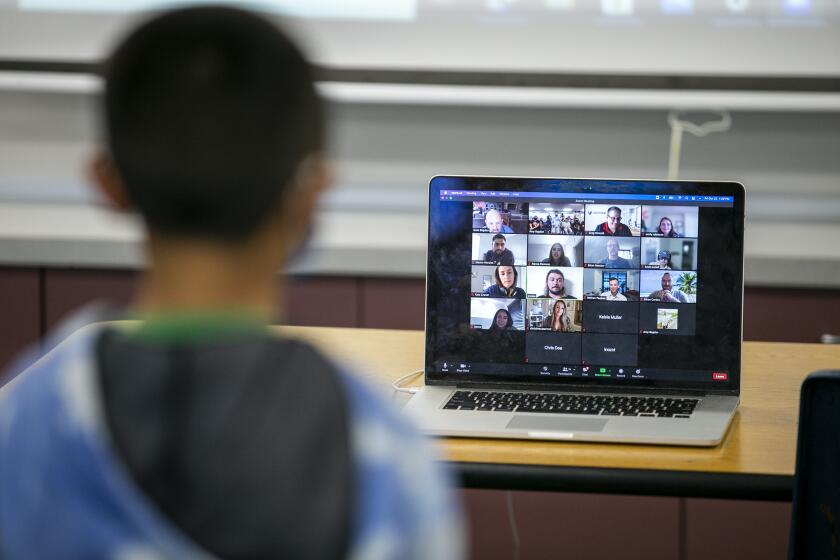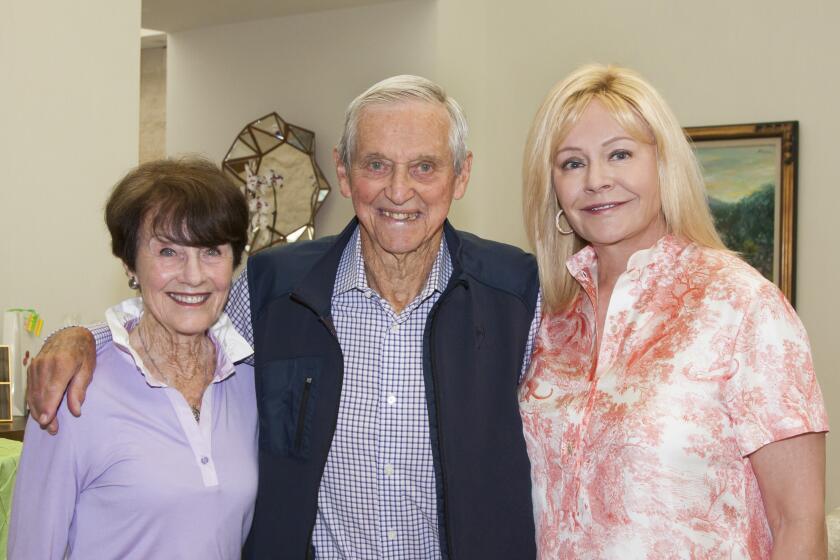City Lights: Could Florida tragedy happen here?
Every so often, a local story turns into a national one — and then a local one again, as individual communities hold themselves up to the light and question whether a similar thing could happen to them. Such has been the case with the death of Trayvon Martin.
Leaving one obvious factor out, the incident in Sanford, Fla. — in which an unarmed 17-year-old was shot by a neighborhood watchman who claimed self-defense — is tragic but not unusual. Every day, somewhere, people die under dubious circumstances; every day, judges and police listen to conflicting accounts of who followed whom or who attacked first.
The Martin case deserves a thorough hearing in court, and with pressure mounting nationwide, I have no doubt that it will receive one. But the case has sparked a national dialogue less about self-defense and vigilantism than about skin color. At this point, has anyone not heard countless times that Martin was black and that his death appears to be racially motivated?
In the last month, a Time magazine columnist published a piece advising parents on how to talk to black boys about the Martin case.
“Black maleness is a potentially fatal condition,” the author wrote, later suggesting that parents explain, “You will have to make allowances for other people’s racism. That’s part of the burden of being black. We can be defiant and dead or smart and alive.”
Cities across the country became sites for “Million Hoodie Marches” that protested both Martin’s death and the concept of racial profiling in general. The Chicago Tribune interviewed a local black father who said about his teenage son, “I constantly tell him, ‘Don’t forget you’re black.’ I don’t want him to run into that guy who does see color one day when he’s walking down the street.”
In short, the Sanford incident has turned into a story about all of us, about our perceptions of others and our practices in dealing with them. And that makes it a Huntington Beach and Fountain Valley story too.
Huntington, in particular, has prided itself in recent years on overcoming a history of intolerance. In the 1990s, city leaders formed the Human Relations Task Force in response to a spate of hate crimes, and the program later birthed HB Reads, in which students and others across the city read a book every year about diversity and minority rights.
When I’ve brought up Huntington’s violent past with residents and law enforcement, I’ve routinely been told that it truly is a past. And that, however naively, was often how I viewed race relations in America growing up.
In school, I read “To Kill a Mockingbird” and other classics of civil-rights literature. We stayed home on Martin Luther King, Jr. Day. I attended class with a small but noticeable minority of black students, none of whom I ever heard called a racial epithet or were excluded from activities.
At UCI, I had a black roommate; later, renting a room in Anaheim, I had a black housemate. Police never pounded on our front doors. About that time, I encountered the works of Larry Elder, the black conservative author who calls racism a negligible problem in America, and they seemed convincing enough — hadn’t I seen through experience that society was color-blind?
If the recent articles are any indication, though, that’s not always the case. And so, today, I’m asking Huntington Beach and Fountain Valley residents to share their thoughts on our neck of the woods.
Both cities, according to the U.S. Census Bureau, have a black population of 1% or less, but don’t feel you need to be black to respond. Write if you have black friends who have been harassed. Write if you have black friends who have never been harassed. That goes for other races too. Police, security guards, watchmen — let us know if you’ve ever been accused of profiling, or if you’ve known colleagues who really did practice it.
Let’s get a dialogue going here. And as for the Martin case, let’s all — black or white, conservative or liberal — hold off on conclusions until we know all the facts.
City Editor MICHAEL MILLER can be reached at (714) 966-4617 or at michael.miller@latimes.com.
All the latest on Orange County from Orange County.
Get our free TimesOC newsletter.
You may occasionally receive promotional content from the Daily Pilot.



